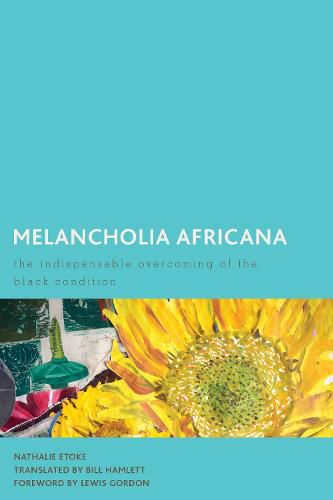Readings Newsletter
Become a Readings Member to make your shopping experience even easier.
Sign in or sign up for free!
You’re not far away from qualifying for FREE standard shipping within Australia
You’ve qualified for FREE standard shipping within Australia
The cart is loading…






Melancholia Africana argues that in the African and Afro-diasporic context, melancholy is rooted in collective experiences such as slavery, colonization, and the post-colony. From these experiences a theme of loss resonates-loss of land, of freedom, of language, of culture, of self, and of ideals born from independence. Nathalie Etoke demonstrates that, beyond territorial expropriation and the pain inflicted upon the body and the soul, the violence that seals the encounter with the ‘other’ annihilates an age-old cycle of life. In the wake of this annihilation, continental and diasporic Africans strive to reconcile that which has been destroyed with what has been newly introduced. Their survival depends on their capacity to negotiate the inherent tension of their historical becoming. The book develops a transdisciplinary method encompassing historicism, critical theory, Africana existential thought, and poetics.
$9.00 standard shipping within Australia
FREE standard shipping within Australia for orders over $100.00
Express & International shipping calculated at checkout
Melancholia Africana argues that in the African and Afro-diasporic context, melancholy is rooted in collective experiences such as slavery, colonization, and the post-colony. From these experiences a theme of loss resonates-loss of land, of freedom, of language, of culture, of self, and of ideals born from independence. Nathalie Etoke demonstrates that, beyond territorial expropriation and the pain inflicted upon the body and the soul, the violence that seals the encounter with the ‘other’ annihilates an age-old cycle of life. In the wake of this annihilation, continental and diasporic Africans strive to reconcile that which has been destroyed with what has been newly introduced. Their survival depends on their capacity to negotiate the inherent tension of their historical becoming. The book develops a transdisciplinary method encompassing historicism, critical theory, Africana existential thought, and poetics.